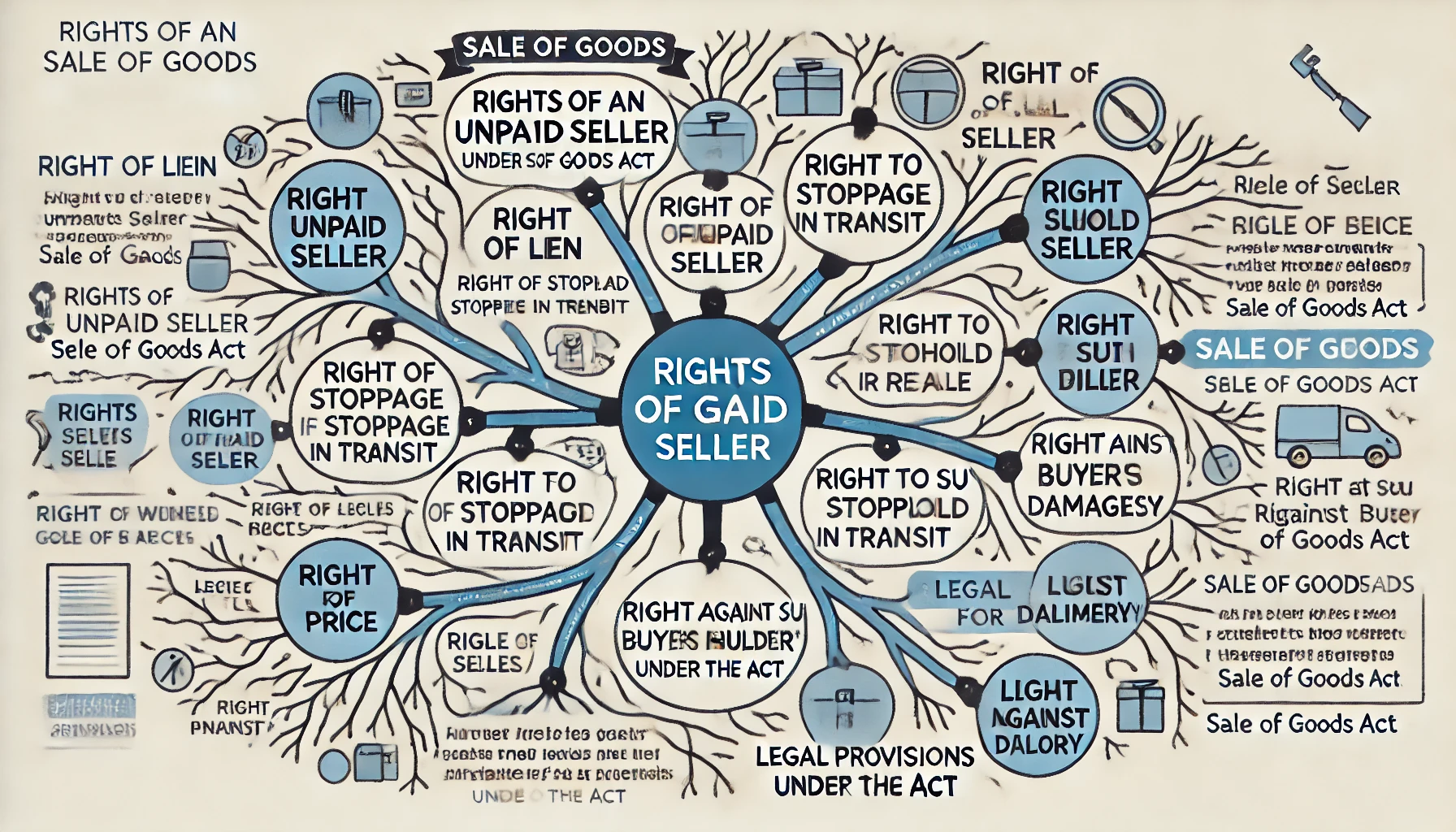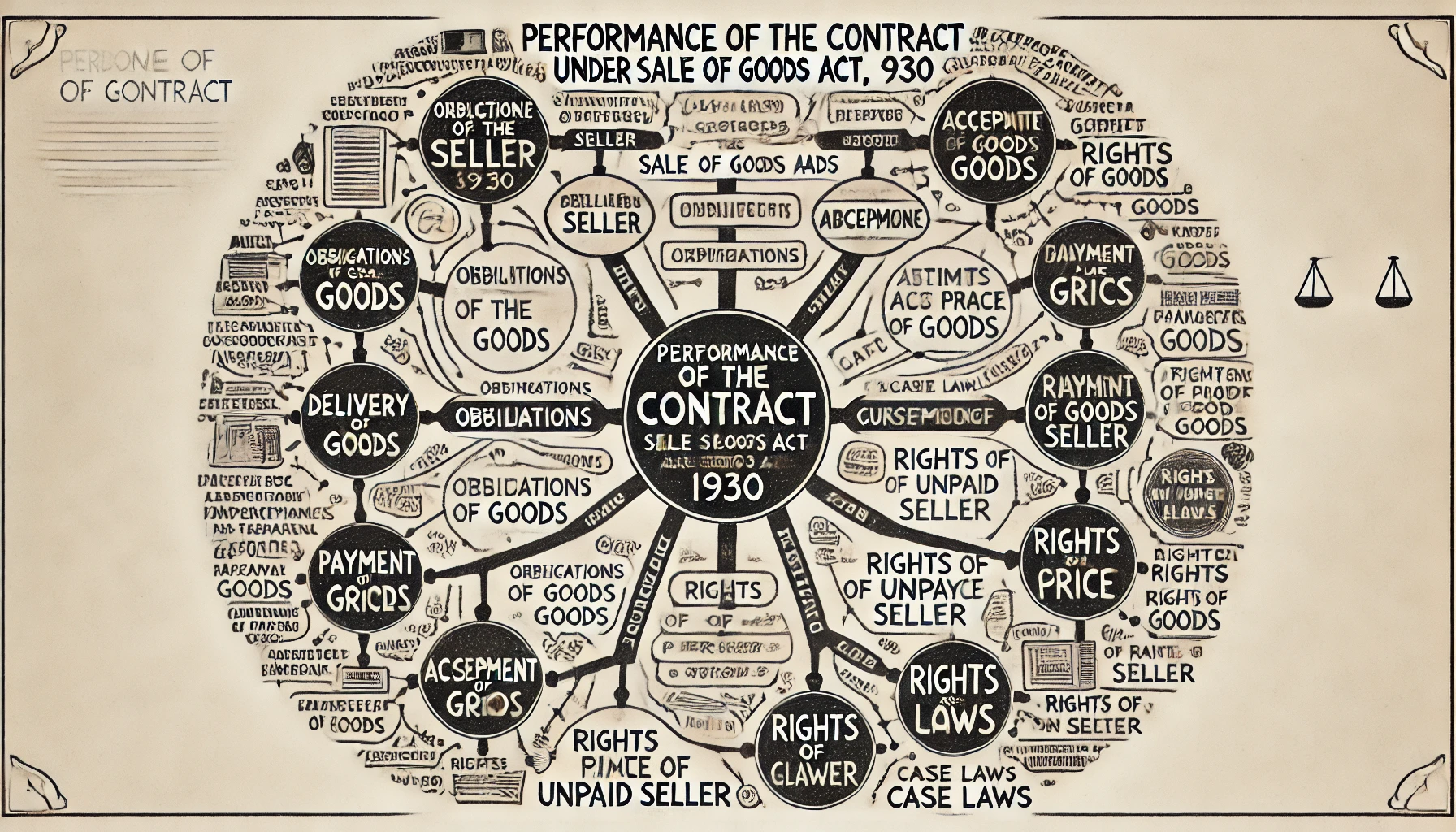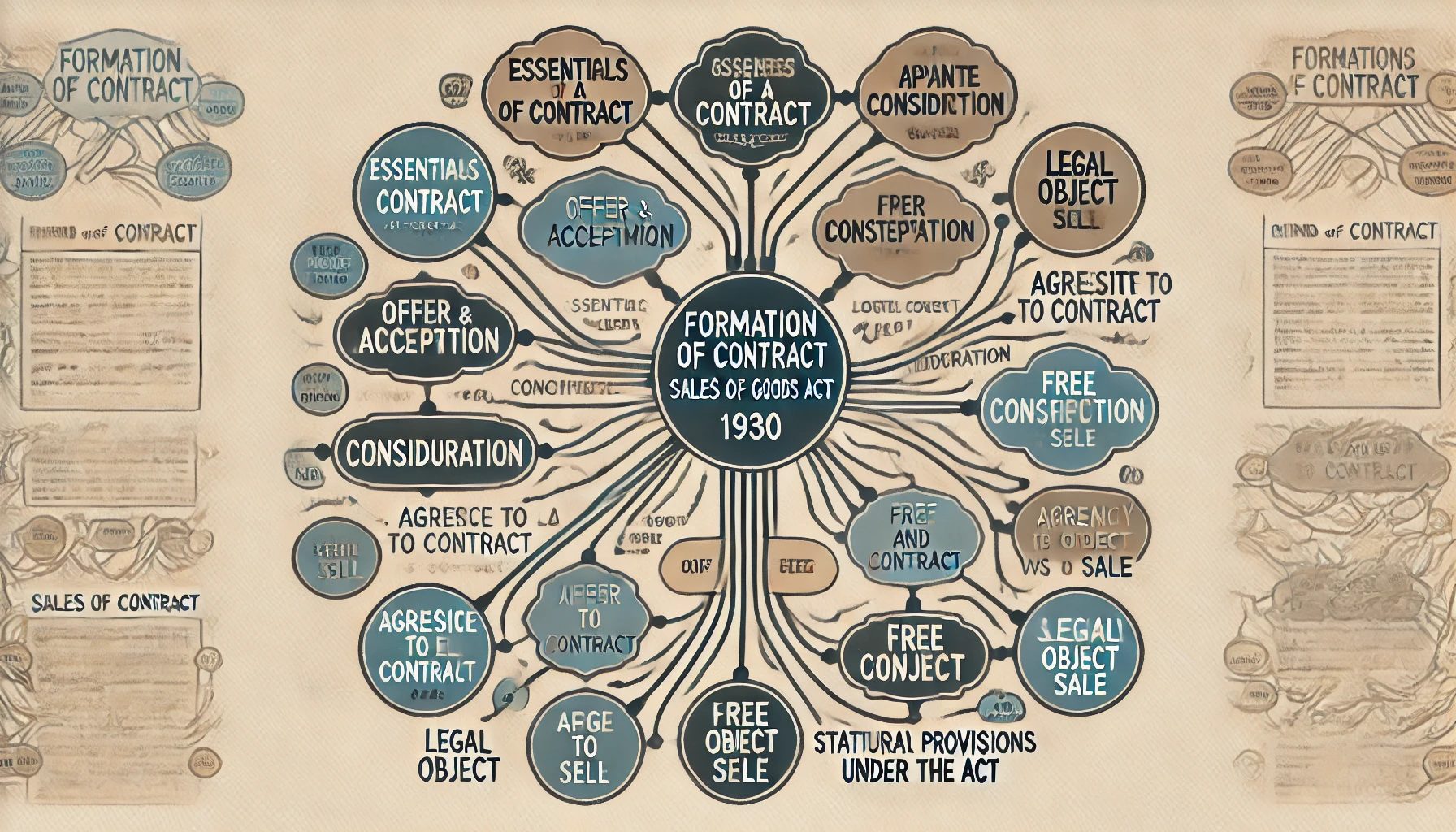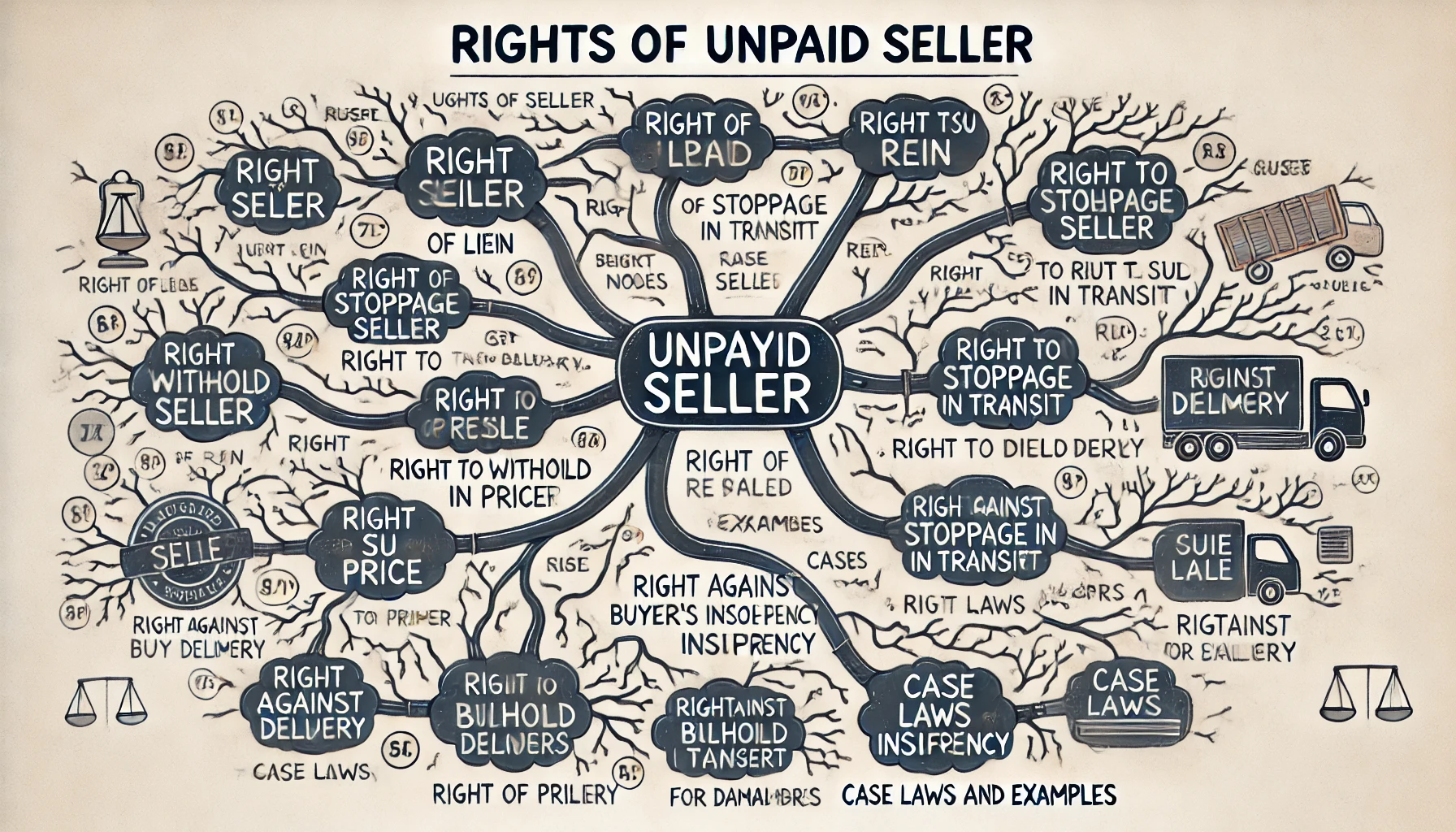Breach of Contract
Section 55: Suit for Price
- When the Property Passes to the Buyer: If under a contract of sale, the ownership of the goods has been transferred to the buyer, and the buyer wrongfully neglects or refuses to pay for the goods as agreed, the seller can sue the buyer for the price of the goods.
- When the Price is Payable on a Fixed Date: If the contract specifies that the price is payable on a certain date, regardless of delivery, and the buyer wrongfully neglects or refuses to pay, the seller can sue for the price even if the ownership of the goods has not passed to the buyer, and the goods have not been appropriated to the contract.
This section implies that the seller can only sue for the price after the ownership of the goods has passed to the buyer. For instance, in the case of Colley v. Overseas Exporter, there was a contract for the sale of unascertained leather goods, but since the goods had not yet passed into the buyer's possession (as no specific ship had been named by the buyer), the seller was not entitled to claim the price.
Section 56: Damages for Non-Acceptance
If the buyer wrongfully neglects or refuses to accept and pay for the goods, the seller may sue for damages for non-acceptance.
Damages are assessed based on the principles outlined in Sections 73 and 74 of the Indian Contract Act, 1872. According to Section 73, when a contract is breached, the party suffering from the breach is entitled to compensation for any loss that naturally arises from the breach or that the parties knew was likely to result from the breach when they entered into the contract.
In the case of Suresh Kumar Rajendra Kumar v K Assan Koya & Sons, the plaintiff sold goods through commission agents and sought compensation from the buyer who had rejected them. The court found that, in the absence of any evidence showing that the sale was improperly conducted, the plaintiff was entitled to claim the difference between the price at which the goods were supposed to be sold to the defendants and the price at which it was finally sold.
Section 57: Damages for Non-Delivery
If the seller wrongfully neglects or refuses to deliver the goods to the buyer, the buyer may sue for damages for non-delivery. Once the property has passed, the buyer, entitled to immediate possession, has all the remedies of an owner against those who deal with the goods in a manner inconsistent with their rights. If the seller wrongfully resells the goods, the buyer may sue both the seller and the second buyer, although the latter's rights may be limited by Sections 30 and 54 of the Act.
In non-delivery cases, the proper measure of damages is the difference between the contract price and the market price at the time of the breach. The market value of the goods refers to "the value in the market, independent of any circumstances peculiar to the buyer." If the seller breaches an agreement to sell, the buyer has the following remedies:
1. Sue for damages for non-delivery under Section 57 of the Sale of Goods Act.
2. If the price has already been paid, recover it through a suit for money had and received for a consideration that has failed.
However, if the buyer fails to prove the alleged damages due to short supply of goods and does not serve notice under Section 55 of the Indian Contracts Act, they cannot claim damages.
Section 58: Specific Performance
Subject to the provisions of Chapter II of the Specific Relief Act, 1877, in any suit for breach of contract to deliver specific or ascertained goods, the Court may, if it sees fit, order specific performance of the contract without giving the defendant the option of retaining the goods on payment of damages. This decree may be unconditional or subject to terms such as payment of the price or other conditions as the Court deems just.
Section 59: Remedies for Breach of Warranty
Section 59 of the Sale of Goods Act outlines the remedies available for a breach of warranty:
- If there is a breach of warranty by the seller, or if the buyer treats a breach of condition as a breach of warranty, the buyer is not entitled to reject the goods but may:
- Set up the breach of warranty to reduce or extinguish the price.
- Sue the seller for damages for breach of warranty.
- Even if the buyer reduces or extinguishes the price due to a breach of warranty, they may still sue for additional damages if they have suffered further harm.
A breach of warranty does not allow the buyer to reject the goods, and their only remedy is to claim damages or reduce the price. Section 13 of the Act clarifies that if the buyer has accepted the goods or part of them, they must rely on a claim for damages as if the breach of condition was a breach of warranty.
This section specifies the methods by which a buyer with a claim for damages can pursue it. It does not address cases of fraudulent misrepresentation, which may allow the buyer to void the contract, nor does it cover situations where the buyer may return the goods due to a breach of warranty. If the buyer has lawfully rejected the goods, they must seek remedies under Sections 57 and 61 to recover the purchase price and interest.
Section 60: Repudiation of Contract Before Due Date
If either party repudiates the contract before the delivery date, the other party may either treat the contract as ongoing and wait for the delivery date or treat it as rescinded and sue for damages for the breach.
Section 61: Interest as Damages and Special Damages
This section preserves the right of a party to a contract of sale to recover special damages, meaning compensation for any loss or damage caused by a breach that the parties knew was likely to result when they made the contract.
In M/s. J. Patel & Co. v. National Federation of Industrial Co-operatives Ltd., the contract involved the supply of tea of a specified quality. The goods supplied did not meet the agreed standard and were rejected by the ultimate recipient, leading to the termination of the contract with the buyer. The court held that the seller could not charge penal interest for delayed payment when the delay was not the defendant's fault.
The Interest Act of 1839 allows interest to be claimed as damages in certain cases. However, the seller can only claim interest if they are entitled to recover the price. If the seller is suing only for damages for breach of contract, they cannot claim interest. The same principle applies to the buyer; they cannot claim interest if they are suing for breach of warranty.
Share
Related Post
Tags
Archive
Popular & Recent Post













































































































Comment
Nothing for now